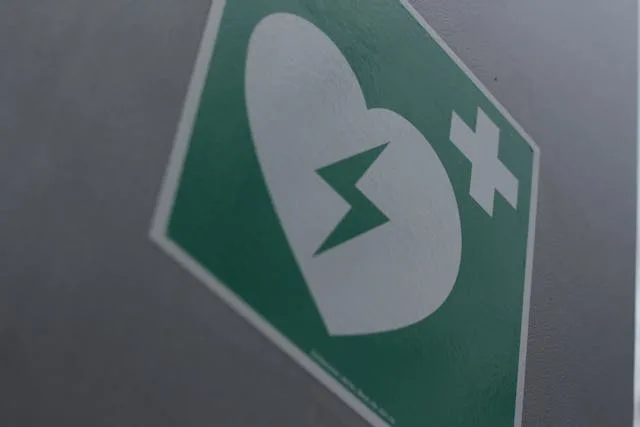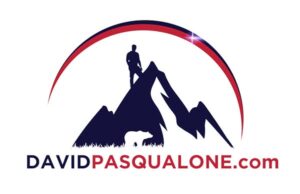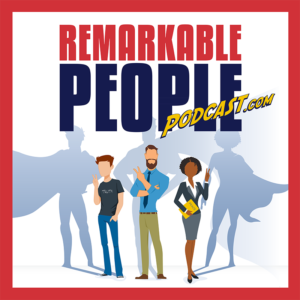Strokes, Heart Attacks and Cardiac Arrests: What’s The Difference?
Strokes, heart attacks and cardiac arrests are all medical emergencies caused by cardiovascular issues. Being able to spot the symptoms and take action can be a lifesaving skill. This guide offers more information on each of these medical emergencies and their differences.
What is a stroke?
A stroke is when blood supply to the brain is cut off. This prevents the brain cells from getting the oxygen and nutrients they need, causing the brain cells to die. If the stroke is not treated in good time, it can lead to brain damage and potentially death.
A blocked artery is the most common cause of a stroke. There are many different reasons as to why an artery can become blocked. Smoking and regularly eating junk food are a common cause – fat and chemicals can form deposits on the walls of your artery, which eventually lead to a blockage. High blood pressure from stress or an unhealthy lifestyle can also cause blockages by stretching out arteries and causing them to collapse in on themselves.
A haemorrhage in the brain can also be a cause of a stroke. These strokes are even more life threatening, but are rarer, making up only 16% of strokes.
1 in 6 people have a stroke in their lifetime. They are most common in old age, but can strike young people too.
What are the signs of a stroke?
You can usually tell that you or someone else is having a stroke by looking out for these symptoms:
- One side of the face goes numb or droops
- Arms and legs become weak. A person having a stroke may not be able to raise one arm or walk.
- Loss of balance and dizziness kick in. This is often accompanied by a headache
- Vision becomes blurry – sometimes in one eye or both eyes
- Speech becomes slurred or difficult. Alternatively, the person have suddenly appear frightened and confused
What should you do if someone is having a stroke?
The quicker you take action when someone is having a stroke, the less damage is caused to the brain. A person having a stroke needs to be rushed to hospital where they can have surgery to remove the blockage or treat the haemorrhage. Therefore, you should ring for an ambulance immediately.
The person having a stroke should sit or lie down until an ambulance arrives. Reassure them that the ambulance is coming to keep them calm. In some cases, people may experience a mini-stroke from which they recover themselves (the blockage may unblock itself), however they should still go straight to a hospital as there’s a high risk it could happen again.
What is a heart attack?
Like a stroke, a heart attack is typically caused by an arterial blockage. But instead of blood flow being disrupted to the brain, blood flow is disrupted to the heart. Because muscle cells in the heart are not getting the blood supply they need, they begin to die off. Eventually the heart may stop working completely if a person does not get medical attention – leading to a cardiac arrest.
Heart attacks are caused by many of the same reasons as a stroke. Arteries become blocked with fat or chemical deposits as a result of smoking or poor diet, or high blood pressure causes arteries to collapse in on themselves.
Heart attacks used to be much more common and deadly. Nowadays, thanks to early heart disease diagnoses, only 2% of people experience a heart attack in their lifetime, and over 90% of people survive them.
What are the signs of a heart attack?
A heart attack will often display the following symptoms:
- There is pain and pressure in the chest
- This pain spreads throughout the body to either the jaw, neck, back, arm, shoulder or upper belly
- Shortness of breath and dizziness kick in
- Women may feel nauseous and light headed
What should you do if someone is having a heart attack?
A person having a heart attack needs to get medical attention as soon as possible to remove the blockage. You should either call an ambulance or drive the person to a hospital. If you are having a heart attack, you should not drive yourself.
It’s important to keep the person having a heart attack calm and urge them to sit down or lie down. Taking aspirin may help thin the blood and relieve a heart attack in some cases, so is worth trying if you have any aspirin handy.
A person having a heart attack will usually remain conscious, but if they do not get treatment soon they may pass out and could even suffer a cardiac arrest. At this stage, you need to be ready to provide CPR.
What is a cardiac arrest?
A cardiac arrest occurs when the heart suddenly stops pumping. It is not the same as a heart attack, in which the heart continues to pump but is not getting blood flow. During a cardiac arrest, blood will stop pumping around the body causing all of the organs to shut down. A person having a cardiac arrest will often pass out immediately and stop breathing. The only treatment is to get the heart pumping again.
While heart attacks are a ‘plumbing’ issue, cardiac arrests are an ‘electrical’ issue. Your heart is like a battery that generates its own electrical current. It can stop working if there is not enough blood being supplied to the heart (a heart attack), if you are not getting enough oxygen into your lungs (from drowning or suffocation) or if there is a surge of adrenaline (such as from a drug overdose).
A person suffering a cardiac arrest typically only has minutes to get treatment. The survival rate is only 1 in 10 – most people who have a cardiac arrest outside a hospital cannot be successfully resuscitated.
What are the signs of a cardiac arrest?
The signs of a cardiac arrest are different to that of a heart attack. They include:
- Immediate chest pain, confusion and fatigue
- Loss of consciousness within 6 seconds
- No breathing and no pulse
What should you do if someone is having a cardiac arrest?
If someone is having a cardiac arrest, you should ring an ambulance immediately as they will need to be resuscitated as soon as possible. The responder will guide you how to perform cardiopulmonary resuscitation (CPR) until a paramedic arrives, however it is useful to know CPR in advance so that you can take action immediately. You can learn basic life support online or take an in-person first aid course.
CPR involves chest compressions that are often combined with artificial ventilation. The purpose of CPR is to keep the heart manually beating so that blood continues to flow around the body, reducing damage to organs. Artificial breaths can meanwhile introduce oxygen to the body.
Contrary to what you see in the movies, it is rare that you will restart someone’s heart solely from performing CPR. An electrical charge is often needed to ‘jump-start’ the heart – which requires someone to use a defibrillator. A paramedic is qualified to use this equipment. That said you don’t have to be a paramedic to use one – provided you have formal training and you have access to a defibrillator, you can and should use it in such an emergency.
Conclusion
Strokes are typically blockages to the brain, heart attacks are blockages to the heart, and a cardiac arrest is when the heart stops beating completely. All can be fatal, but by knowing their differences and taking the appropriate action immediately you can increase the chance of survival.
Want More Info? How about a Free 30-minute Consult with Ascend?
Schedule My Free Consultation Now!
Special thanks to the following source(s) for the image(s) used in this article:
- Pexels: https://www.pexels.com/photo/close-up-of-leaf-249348/
Enjoy a Great Podcast? ?
Check out this Remarkable episode to continue the conversation and help you grow!

Leadership, Not Politics: Why Mike Lindell is Running for MN Governor & Remarkable MyPillow Deals
Key Takeaways: Leadership, Not Politics 2026 Gubernatorial Run: Mike Lindell officially announced his run for Governor of Minnesota on December 11th, positioning himself as a leader rather than a career politician. Fiscal Accountability: Mike aims to tackle widespread welfare fraud in Minnesota, which he estimates ranges from $9 billion to $18 billion. Economic Reform: By eliminating systemic fraud and implementing vetted programs, Mike believes the state could potentially eliminate state...
 Listen Now!
Listen Now!
THANKS FOR LISTENING TO THE REMARKABLE PEOPLE PODCAST! ?
Click Here for More Remarkable Episodes on Almost Any Topic You Can Imagine.?
DISCLAIMER: This is an affiliate article. We post affiliate articles with the intent of helping you grow. They are not written, researched, or necessarily endorsed by our team. They are simply content submitted to us by what appears to be respectable affiliate sources, people, and organizations, which upon initial review, seem solid and helpful to our community, so we post them. It is up to you to personally verify the facts, links, organizations mentioned, the validity of the information presented, and any/all claims made in the article(s). To report an issue with any of the information, links, or organizations mentioned in this, or any content posted on our website, or if you simply have a question or need something we can help you with, please contact us now.






